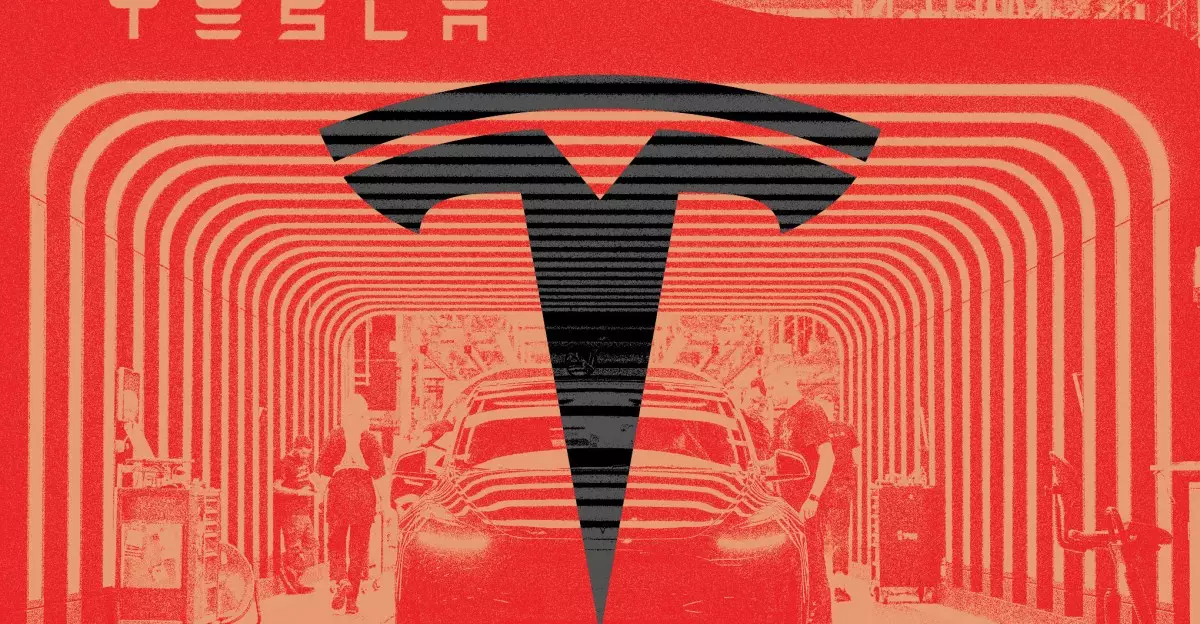Tesla, once heralded as the titan of the electric vehicle (EV) sector, finds itself grappling with serious challenges in the European market. Recent data reveals that sales for the iconic brand have plummeted by nearly 50 percent, a staggering decline that raises critical questions about the company’s trajectory and strategic agility. As EV offerings bloom across the continent, capturing the attention of a more environmentally conscious consumer base, Tesla, paradoxically, appears to be losing ground. This is particularly alarming considering the overarching rise in battery-electric vehicle sales, which surged by over 26 percent, contrasting sharply with Tesla’s dismal performance.
The numbers paint a bleak picture for Tesla: in April, the automaker recorded only 7,261 new registrations, a significant drop from previous years. Typically, such drastic fluctuations in sales might be attributed to seasonal factors or changes in consumer behavior. In Tesla’s case, however, it points to deeper-rooted issues that the company needs to confront head-on.
The Challenge of Competition
The landscape of the automotive industry is rapidly evolving. Tesla’s early admission of electric vehicles revolutionized perceptions about sustainable driving; however, the company now faces burgeoning competition from both entrenched European automakers and agile new entrants from China. Brands that were once seen as challengers are now utilizing advanced technology and innovative production methods to lure customers away from Tesla. This newfound competitiveness results in greater options for consumers, making loyalty a more challenging pursuit for the once-undisputed leader in EVs.
Moreover, the launch of the refreshed Model Y, hailed as a potential game-changer and roof-raiser, has failed to translate into anticipated sales spikes. The allure of a revised model usually generates excitement among consumers; however, this time, the optimism surrounding this launch has fallen flat. This stagnation may signal that consumers are now looking beyond the Tesla brand, seeking out options that offer competitive pricing or alternative technological advantages.
Political Ramifications and Public Perception
At the heart of Tesla’s difficulties is its association with Elon Musk, a figure whose polarizing presence undoubtedly influences public perception of the brand. Musk’s foray into politics, particularly his alignment with the far-right politics of certain European nations, has likely alienated potential customers, especially in regions where social and environmental issues take precedence in consumer decision-making.
This is more than mere speculation; recent surveys indicate a significant dip in Musk’s favorability among the general public. With 58 percent of respondents expressing an unfavorable view of him, the implications for Tesla are profound. A charismatic CEO can indeed be a brand’s strongest asset, but when their actions overshadow product offerings, the consequences can be dire. This is an essential consideration as the brand’s image becomes increasingly intertwined with Musk’s personal and political associations.
Navigating Future Challenges
Elon Musk’s attempts to balance his political endeavors with Tesla’s operational interests appear to be complicating the company’s roadmap. While he has publicly acknowledged the need to dedicate more time to Tesla, his focus seems to shift towards broader ambitions in artificial intelligence and robotics, as well as ventures into self-driving technologies. Such divestment from core automotive practices may leave the company vulnerable amidst rapidly changing competitive dynamics.
Evidently, the road ahead is fraught with challenges. There is no clear blueprint for overcoming the brand’s tarnished reputation or revitalizing sales in Europe. The landscape is crowded with players who are quickly adapting to market demands and consumer expectations. For Tesla to remain a key player in the European EV market, decisive actions are imperative—recommitting to innovation while breaking free from controversial associations that may hinder growth.
As the EV revolution unfolds, consumers are now at a crossroads, weighing their options more critically. The question remains: can Tesla adapt and prosper, or will it become a cautionary tale of ambition outpacing reality?

